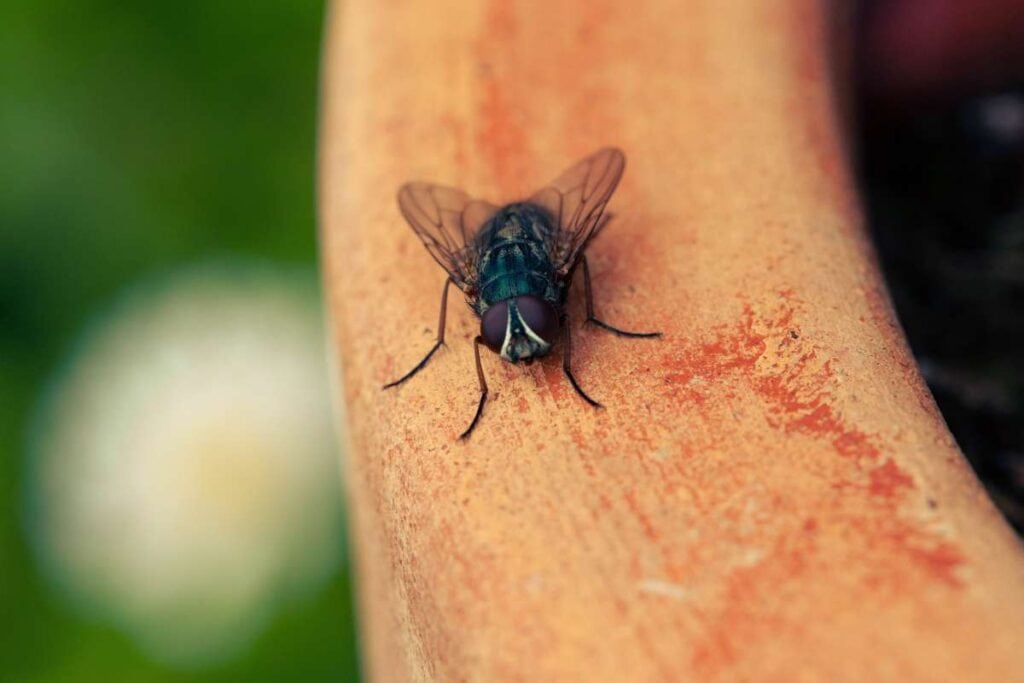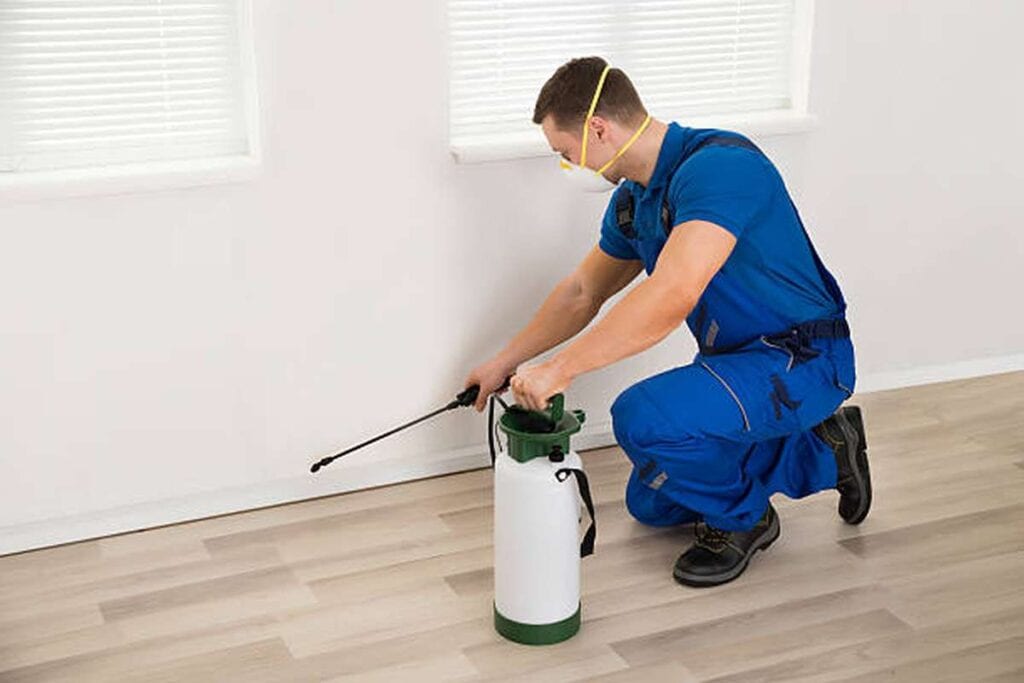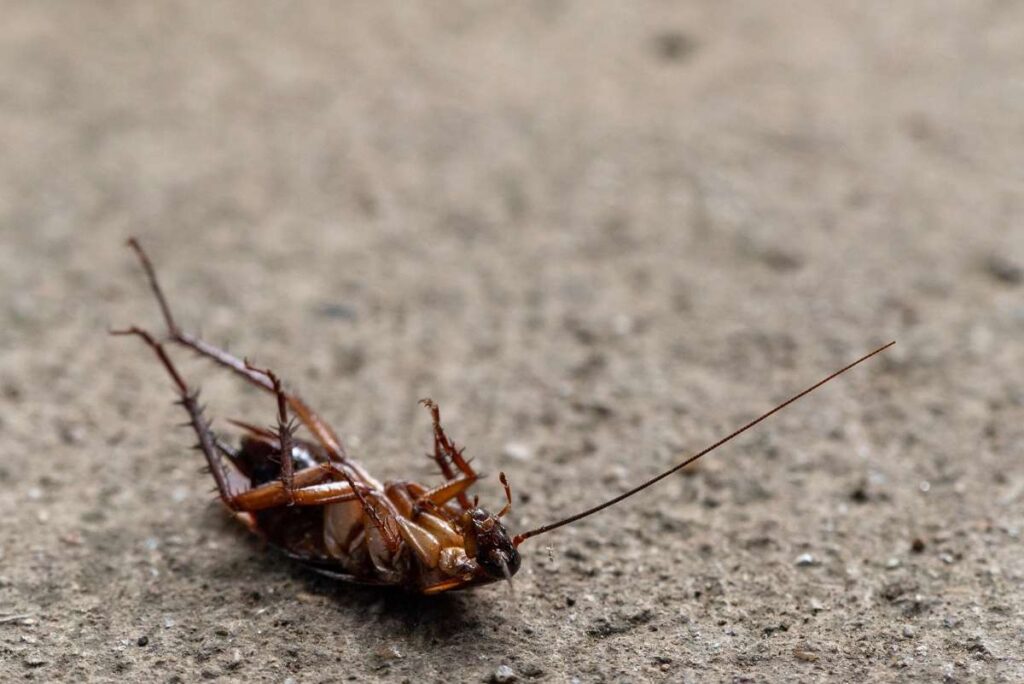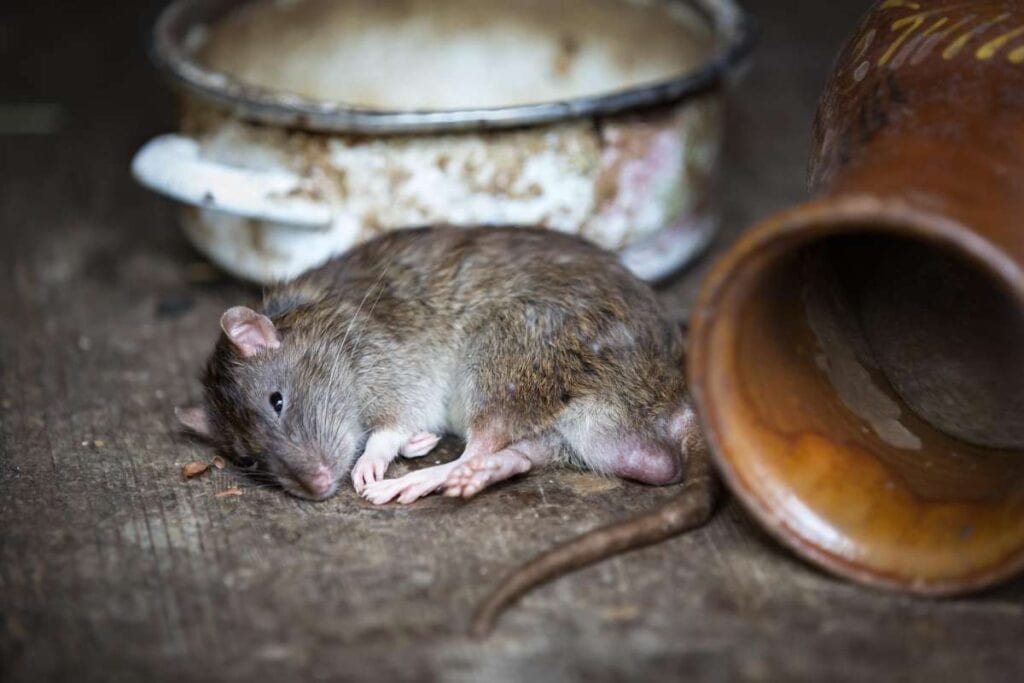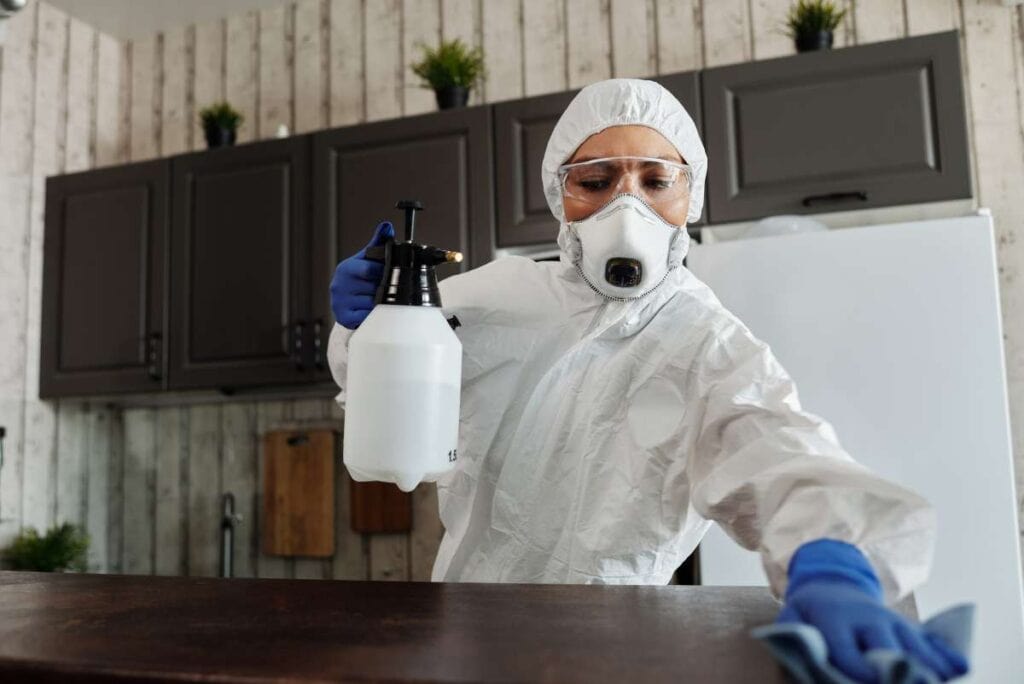Flies can be a real nuisance, especially in the summertime. If you're looking for tips on how to get rid of them, you've come to the right place!
It is not uncommon to see a fly in the house. When the annoying insects appear out of nowhere, though, you must take preventative measures.
While it's true that flies can reproduce indoors, the vast majority of them will likely have entered your home from outdoors.
Open doors and torn windows are the most common entryways for flies, and they also frequent mulch piles (which serve as breeding grounds) and garbage cans placed nearby.
Although we usually think of them as a summertime problem, house flies may proliferate anytime and become a nuisance in any climate. It's just that houseflies are far more likely to invade during the warmer months of the year.
We know how much damage pests can do. That’s why All Pests offer affordable pest control services that will get rid of the pests and stop them from coming back.
In this blog post, we'll discuss some effective methods for getting rid of flies in your house. Keep reading for more information.
Eliminating All Sources of Food for Flies.
Ugh-inducing waste products, garbage disposal sludge, rotting fruit and vegetables, trash, and greasy spills are all prime breeding sites for house flies.
Keep the litter box clean, and thoroughly clean, monitor what you bring home from the farmers market, sanitise the trash can, thoroughly rinse out recyclables, and immediately wipe up any spills. Flies can be attracted to less offensive things, such as cat food or an empty wine glass.
Remember to look outside for affordable flights. House flies often congregate just beyond your home and fly inside when they see an open door or window, so getting rid of them should be a priority, even if you don't have a bug problem inside.
Disinfect outdoor trash cans and recycling bins, and remove any pools of water (check your gutters! ), pet waste, and decaying wood or plants.
Getting Yourself a Light Trap.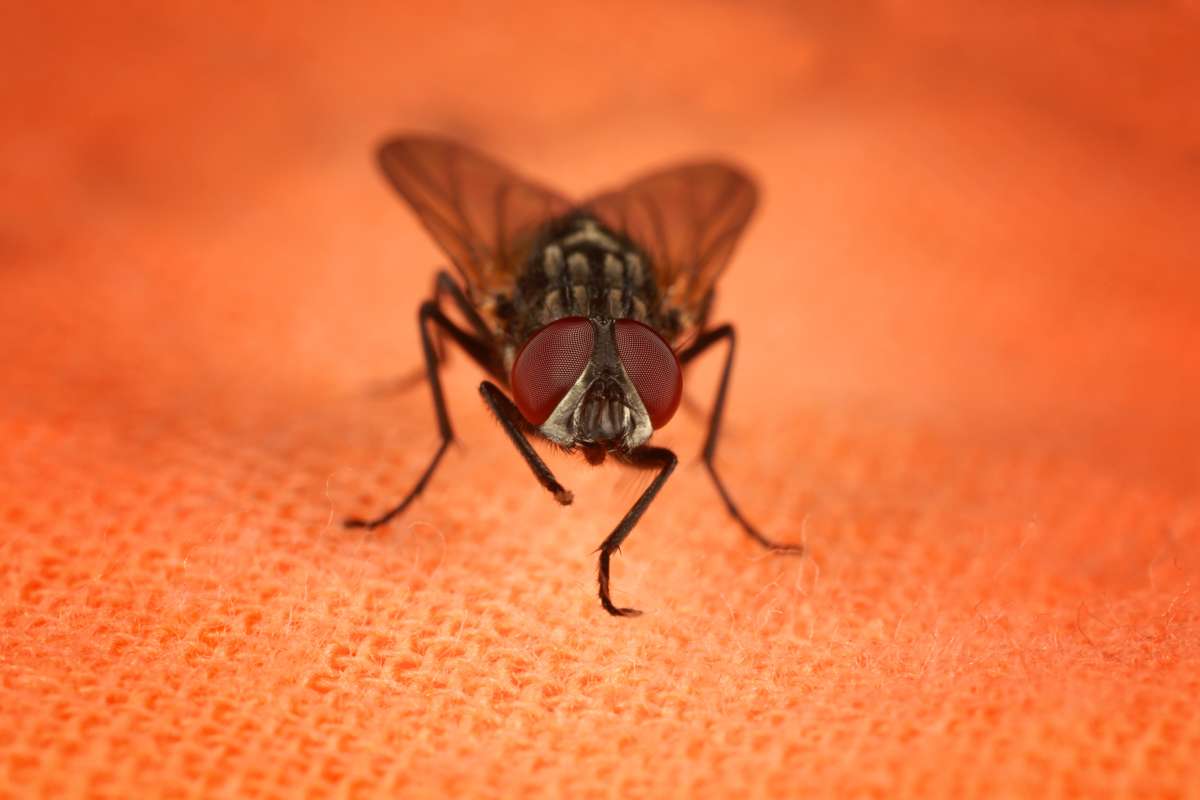
Insects such as house flies are drawn to light with a narrow wavelength (like ultra-violet light). Indoor light traps use ultraviolet light with a hidden sticky trap, whereas outdoor light traps often use ultraviolet light in conjunction with a low-voltage power infrastructure "zapper."
Plug-and-play convenience has made light traps ubiquitous in the home. If you decide to use a light trap indoors, make sure it can be set between 4 and 6 feet from the ground, where flies tend to congregate.
If at all possible, locate it away from windows, lest you invite an entirely new set of problems in the form of annoying flying insects.
Eliminating House Flies Without Pesticides
Killing houseflies without pesticides is not only doable but often preferred. Among the many possible approaches are:
Cleaning With Dishwashing Liquid and Vinegar
To catch flies, combine vinegar and dish soap. A mixture of a few drops of dish soap and roughly an inch of cider vinegar in a big glass is all needed to implement this strategy. Put some plastic wrap over the glass. Put a rubber band around the plastic and make a few holes at the top.
Fruit flies will be drawn to the vinegar and through the glass holes. Instead of landing on the vinegar, the flies are pushed downward by the dish soap and drown.
A Venus Trap
Carnivorous plants like the Venus flytrap feed only on other insects. They will naturally consume mosquitoes and other flying insects if planted outside. The plant flies within may need to be fed.
The trap of the plant closes around the insect once it has entered. The insect's fragile insides are dissolved by digesting fluid secreted by the organism. Over the course of 5–12 days, the insect is digested, and the exoskeleton is regurgitated.
Authentic, All-Natural Trap Bait
Food and beverages that attract flies can also lure them into traps. Here are some of them:
- fruit
- honey or sugar
- meat
- wine
Using Pesticides Containing Pyrethrin
Insecticides can be useful because they quickly eliminate a huge population of houseflies. The short life cycle and inevitable resistance development of flies render such measures ineffective over time. Another downside of pesticide use is that its effectiveness quickly wears off.
Insecticides containing pyrethrin are the go-to for eliminating indoor fly populations if you choose to go that route. Obtain an indoor-use pesticide, provide adequate ventilation, and strictly adhere to the label instructions.
Other Methods for Eliminating Flies Around Your House
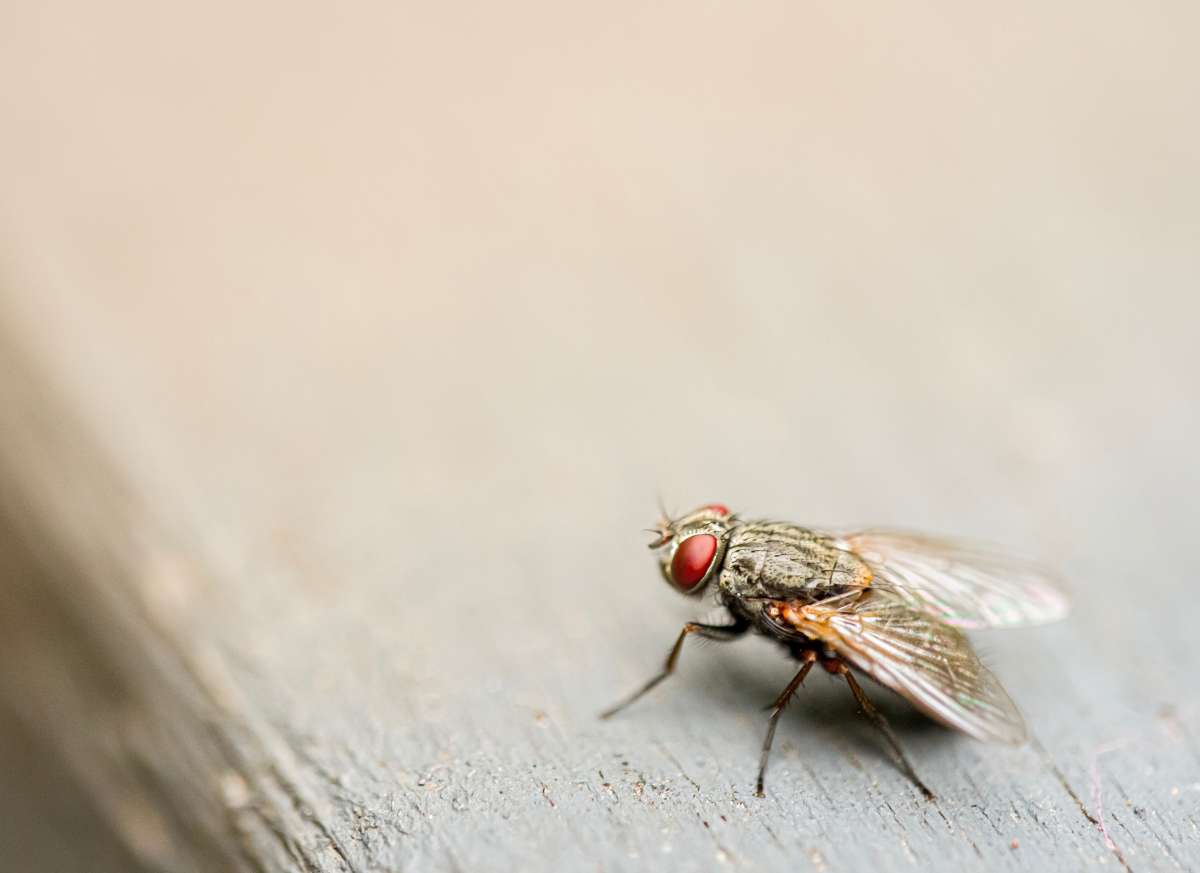
Most flies will enter your home from the outside, so taking action to alter your property may help. All Pests offers a professional and affordable service that will rid your home or office of any unwanted pests.
Displace Mulch Heaps Far From the House.
They will serve as a breeding ground for flies. If you don't have much room, move the stack away from any entrances or windows you have.
Don’t Forget to Close the Trash Cans.
Garbage attracts flies because of the odour of spoiled food and other decaying materials. You should be able to prevent this by keeping the containers locked and away from potential entryways.
Do Not Neglect Pet Waste Cleanup.
Not only do flies love to spawn in human waste, but they also may settle there before they get to your food.
Add Some Plants to Your Lawn to Liven It Up.
Mint, lavender, and basil are just some plants that have been shown to deter flies and other insects. Once again, it's because they dislike the aroma.
Keeping the Houseflies at Bay
An infestation of houseflies is best dealt with by avoiding them first and foremost. The best way to prevent fly infestation is to eliminate potential breeding grounds and fly attractants.
- Double-check for cracks or other damage to the caulking around your doors, vents, and windows.
- Take out the trash as soon as the bag is full and use a can with a secure lid.
- Maintain freshness by storing food in containers with tight lids.
- You shouldn't leave used glasses or plates out.
- Don't scatter yard waste like grass clippings and dead leaves around your property.
- When it's dark out, please turn off any exterior lights. Light is a major magnet for fly populations.
- Never use rat poison, as the dead rodents will attract flies.
- Remove cat poop from the litter box as soon as possible.
When to Get Help From Experts.
Removing a house fly as quickly as possible is highly recommended. Remember that you need to get rid of the fly before it can lay its eggs.
If you've already tried these solutions and you still have an unwanted roommate or roommates, it's time to get some help.
They will examine your home's inside and exterior for potential breeding grounds, and then either spray insecticide or set out traps, depending on the severity of the house fly infestation.
Do you have a fly problem? All Pests is here to help. We offer flies pest control services and employ the most up-to-date methods available in the industry. We want to make sure your fly problem is taken care of as quickly and efficiently as possible.
Conclusion
Flies can easily enter a home through broken windows or doors, and they are often seen around compost bins and trash cans. House flies thrive in places that make people gag, such as garbage disposal sludge, rotten fruit and vegetables, trash, and oily spills. Maintain a spotless litter box, watch what you bring in from the farmer's market, sterilise your garbage can, give your recyclables a good rinsing, and clean up any accidents right away. If you want to use a light trap indoors, make sure it can be positioned four to six feet off the floor, as this is where flies are most likely to be hiding. Food and drinks that attract flies can be used as bait in All-Natural Trap Bait.
Insecticides have short-term benefits due to their ability to kill large numbers of houseflies. When dealing with a housefly infestation, prevention is key. Pesticides with pyrethrin are the most effective way to get rid of flies in the house. Relocate the pile far from any windows or doors if space is at a premium. You may prevent mosquitoes and other flying pests by planting some flowers in your yard.
The simplest method to stop a fly problem in its tracks is to eliminate the places where they can breed and the things that attract them. Double-check the caulking around your windows, vents, and doors for any signs of cracks or other damage. The use of rat poison is discouraged since the deceased rodents will attract flies. It's time to seek assistance if you're still living with an unwelcome roommate or housemate.
Content Summary
- It's not uncommon for flies to become a major problem during the warmer months.
- In such case, you've found the proper spot to look for advice on how to get rid of them!
- Infestations of houseflies are not unusual.
- However, preventative actions are required when pesky insects suddenly appear.
- Most flies in your house probably came from outside, although flies can reproduce within.
- The most common points of entry for flies are broken or open windows and doors, but they can also enter through mulch piles (which act as breeding grounds) and nearby garbage cans.
- In this article, we'll go over a few tried-and-true strategies for eliminating the flies plaguing your home.
- Although they are more commonly associated with the warmer months, house flies can become a nuisance year-round.
- Getting rid of the flies' food supply entirely.
- House flies thrive in places that make people gag, such as garbage disposal sludge, rotten fruit and vegetables, trash, and oily spills.
- Always think outside the box while trying to get low-cost airline tickets.
- Even if you don't have a pest problem inside your house, house flies may swarm just outside and enter through open doors or windows.
- Small-wavelength light attracts insects like houseflies (like ultra-violet light).
- Avoid having it near windows if you can help it; otherwise, you may end up with a whole new set of troubles in the shape of irritating flies.
- Getting rid of houseflies without using pesticides is not only possible but often preferred.
- Using this method is as simple as mixing some dish soap into some cider vinegar in a large glass.
- Just cover the glass with some plastic wrap.
- Drill a few holes in the plastic's top and secure it with a rubber band.
- The vinegar attracts fruit flies, which will fly through the perforations in the glass.
- The dish soap deflects the flies so that they don't land on the vinegar and instead sink to their deaths.
- If you plant them outside, they will naturally eat mosquitoes and other flying insects.
- It's possible the plant flies inside require food.
- Once an insect enters the plant's trap, the trap seals itself around it.
- Original, 100% Pure Trap Bait If you know what kind of food or drink causes flies to congregate, you can use that to your advantage in setting traps.
- I'll list a few of them below: fruit, honey, or sugar, meat, and wine.
- The rapidity with which insecticides may wipe out a large colony of houseflies is one reason why they are useful.
- Due to their short lifespan and propensity to acquire resistance, flies quickly become immune to these kinds of treatments.
- The fact that pesticides lose their potency fast is yet another drawback.
- If you opt to use an insecticide, pyrethrin-based products are your best bet for getting rid of a fly problem inside.
- Get a pesticide labelled for indoor use, create a well-ventilated space, and use it as directed.
- To reduce the number of flies in your home, you should focus on the exterior.
- Flies will use them as a nesting place.
- Relocate the pile far from any windows or doors if space is at a premium.
- Garbage has an odour that attracts flies due to the decaying food and other items it contains.
- Keeping the containers closed and out of the way should prevent this from happening.
- Pet waste removal should not be overlooked.
- Flies not only find human garbage an ideal breeding ground, but they may also set up permanent residence there.
- Liven up your lawn by planting some flowers or grasses.
- There are many plants, like mint, lavender, and basil, that have been proved to prevent flies and other insects.
- Defeating the Pests That Infest Your Home When dealing with a housefly infestation, prevention is key.
- The simplest method to stop a fly problem in its tracks is to get rid of the places where they can breed and the things that attract them.
- Double-check the caulking around your windows, vents, and doors for any signs of cracks or other damage.
- Get rid of garbage as soon as the bag gets full and keep things locked up in a trash bin with a lid.
- Put perishables in airtight containers to keep them edible for as long as possible.
- Avoid strewing around your lawn trash like clippings and fallen leaves.
- Please turn off any outside lights when it becomes dark.
- Flies are attracted to light in large numbers.
- Use of rat poison is discouraged since the deceased rodents will attract flies.
- Cat faeces should be cleaned out of the litter box as soon as possible.
- Getting rid of a house fly as soon as you see one is a must.
- Remember that you must eliminate the fly before it has a chance to lay its eggs.
- After exhausting these options, if you still find yourself living with an unwelcome roommate or roommates, it's time to seek professional assistance.
- Depending on the severity of the house fly infestation, they will either spray insecticide or set out traps after inspecting the interior and exterior of your home for potential breeding grounds.
FAQs About Fly Infestation
- Find the source.
- Clean common areas.
- Use the rotten fruit against them.
- Make a swimming pool trap.
- Mix a vinegar solution.
- Try a store-bought trap.
- Hire an exterminator.
Open, unsealed garbage and trash cans can act as beacons for flies to come into your home. Flies are attracted to decomposing, often smelly, organic material. If you carelessly dispose of organic waste inside your home, you are setting the stage for a fly infestation.
Flies tend to reproduce a lot in the summer and your area might just happen to have a lot of a certain species at certain times of the summer. If you've left the lights on in your house during the night, it will draw flies, and with the window open you could discover hundreds of them occupying a room suddenly.
The larvae will then pupate in the soil for 11-14 days, after which a new generation of adult cluster flies emerge. From egg to death, the cluster fly lifespan lasts from one to three months.
The obvious sign of a cluster fly infestation is to see a large quantity of lame or dead flies. It's also very common to find them in your loft, in sunken spot lighting or under insulating felt layers. Cluster flies typically return year after year, unless eaves and other entry ways are adequately sealed.

